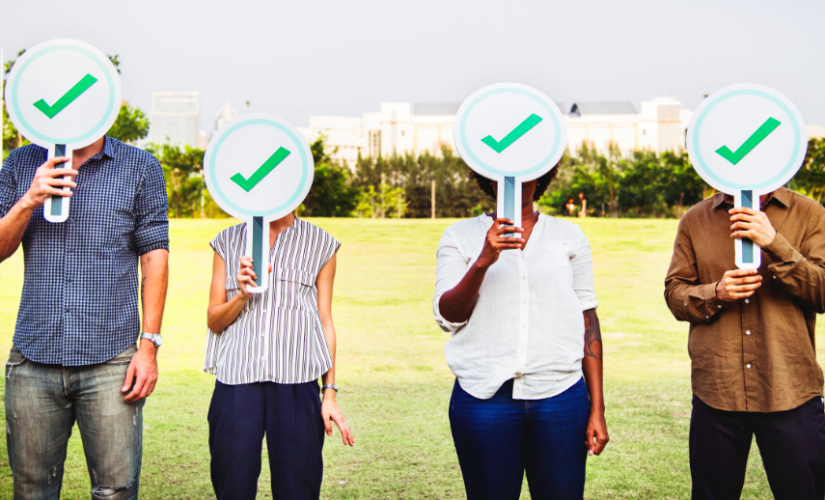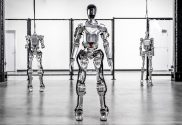For all of the “isms” supposedly being felled by enlightened Americans, the U.S. economy remains stunningly unfair.
Take racism. On one hand, interracial marriages have grown fivefold in the 50 years since Loving v. Virginia, which legalized the practice. On the other, the average median household wealth of African-Americans declined by 75 percent between 1983 and 2013, according to a report from the Institute of Policy Studies. A joint study by Northwestern University, Harvard University, and the Institute for Social Research found that employer discrimination against African-Americans hasn’t budged since 1989.
Sexism shows a similar trend. Despite the successes of the “Me Too” movement in holding sexual assaulters accountable, women still make just 82 percent of what men earn for doing the same job — a figure that Pew Research Center claims has remained relatively stable over the past 15 years.
The truth is that Americans aren’t building a fair economy on their own. Prejudices are deeply rooted and, in many cases, institutional barriers are too great. Machines, however, may be able to bridge the wealth gap by opening up more economic opportunity.
Computational Justice
Although artificial intelligence and big data technologies are still young, they’ve shown promise in a range of sectors for making business decisions more equitable.
Accessing capital, for example, remains far more difficult for women and minorities than it is for white men. A stunning 98 percent of venture funding flows to men from an industry that is 82 percent male. Less than 1 percent of venture-backed founders are black, as is a correspondingly small proportion — 2 percent — of those in senior VC positions.
One fintech company and lending platform, Kabbage, is working to change that. The automated loan platform intentionally strips race and gender bias from its lending process. Because Kabbage’s algorithms leave such subjective matters out of funding decisions, minorities and women receive a greater share of its loans than national data on women- and minority-owned small businesses would suggest.
AI and big data have also begun to make their mark on another area that has traditionally held women and minorities back from economic prosperity. Even with affirmative action, the fact is that blacks and Hispanics are more underrepresented at top colleges and universities than they were 35 years ago. Although 15 percent of college-aged Americans are black, only 6 percent of those admitted to elite universities are African-American.
At least publicly, colleges aren’t using AI algorithms to make admissions decisions — yet. But according to Kevin Kelly, WIRED founder and author of “The Inevitable,” the use of AI in college admissions is an inevitability. For years, colleges have used algorithms to sort applicants by grade point average and admissions test scores into “yes,” “no,” and “maybe” buckets, which later receive human review.
On the student side, platforms like SchoolWise are leveraging AI and machine learning technologies to match students to suggested schools. “While data analytics and machine learning [have] transformed many industries, [they haven’t] helped students in the college admissions space,” SchoolWise founder and MIT graduate Salil Sethi said in a prepared statement. In addition to mapping applicant personalities to college cultures, SchoolWise offers other resources like financial aid calculators and admissions counselors.
Beyond access to capital and education, economic discrimination manifests itself in more pernicious ways, too. Minority-dominated neighborhoods, for instance, pay higher car insurance premiums than white areas assessed at the same level of risk. The ProPublica report found that insurers like Allstate, Geico, and Liberty Mutual charged premiums that were 30 percent higher, on average, in zip codes where most residents are minorities.
Insurers looking to make more premiums more objective are turning to analytics and AI for a helping hand. When Allstate shifted from primarily personal insurance products to commercial ones, it took the opportunity to develop an AI assistant called ABIe, the Allstate Business Insurance Expert, to help agents quote and issue insurance products. Although Allstate hasn’t mentioned how the racial or gender makeup of its policyholders has changed since, ABIe removes at least some amount of agent subjectivity from the equation.
The Data Dilemma
AI has certainly helped to make economic pillars like education, financial services, and insurance fairer, but will it ever automate discrimination out of the economy? Not if humans continue to feed it data tainted by biases. Algorithms trained on data sets ingrained with “isms” are no better than their human handlers at making objective decisions.
But at least compared to the complexity of society-level human decisions, biased data sets are a small problem to solve. And when it comes to algorithmic decision-making, progress begets progress. When machines work with more objective data, they make less subjective decisions. When they make fairer decisions, they generate more objective data on which to model future decisions.
So while machines may not be able to build a fairer economy alone, they’re at least better able to look objectively at data they’re given than people are. That may not sound like much, but it’s a step forward: a step that Americans themselves must take and run with.




